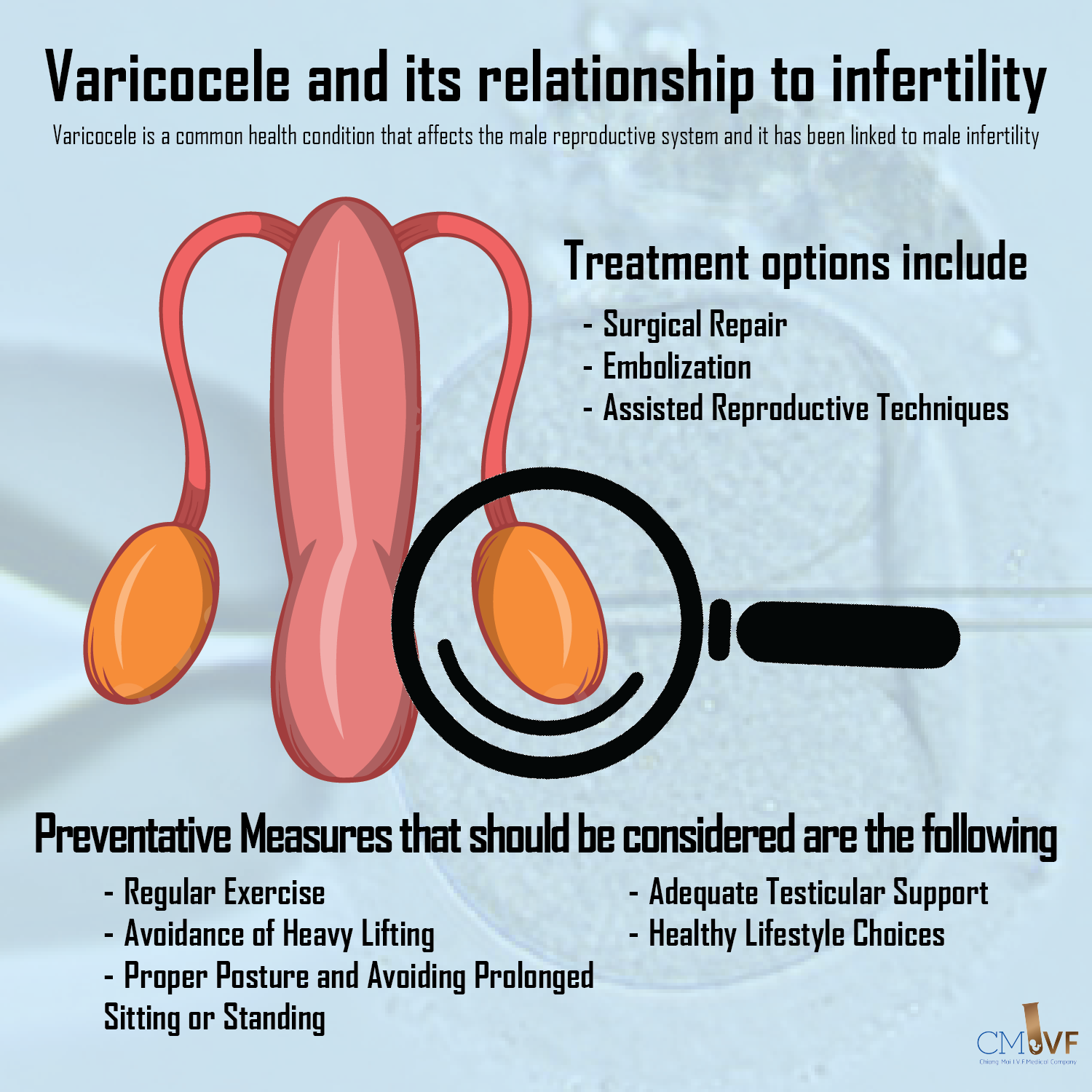
Varicocele is a common health condition that affects the male reproductive system and it has been linked to male infertility. Varicocele refers to the abnormal dilation and enlargement of the veins within the scrotum, leading to the pooling of blood and increased temperature in the testicles and it is estimated that varicocele affects approximately 15% of adult men and is the leading cause of male infertility. The condition itself is thought to be caused by the malfunctioning of the valves within the veins that regulate blood flow. This malfunction causes the blood to pool and results in the dilation of the veins. Some of the factors that may contribute to the development of varicocele include genetics, hormonal imbalances, and anatomical abnormalities. In a treatment protocol it is important to consider that varicocele repair may not be recommended for men with severe oligozoospermia or azoospermia, high serum FSH concentrations, and small testes, as these factors are associated with severe germ cell damage and lower likelihood of fertility after varicocele repair.
Treatment options include
1. Surgical Repair: In this procedure, a surgeon ligates or blocks off the affected veins, redirecting blood flow to healthier veins.
2.Embolization: A minimally invasive procedure where a catheter is inserted into the affected veins and a tiny coil or solution is used to block blood flow.
3.Assisted Reproductive Techniques: In cases where varicocele treatment does not restore fertility, assisted reproductive techniques like in vitro fertilization (IVF) or intracytoplasmic sperm injection (ICSI) can be considered.
Preventative Measures that should be considered are the following:
1. Regular Exercise: Engaging in regular physical activity, especially exercises that promote healthy blood circulation, can be beneficial. Activities such as walking, jogging, swimming, and cycling can help improve blood flow and reduce the likelihood of developing varicocele.
2. Proper Posture and Avoiding Prolonged Sitting or Standing: Maintaining good posture and avoiding prolonged periods of sitting or standing can help prevent the pooling of blood in the scrotum. Taking breaks, stretching, and changing positions frequently can assist in maintaining healthy blood flow.
3. Avoidance of Heavy Lifting: Excessive strain during heavy lifting can increase pressure on the veins in the scrotum. Limit the weight and duration of heavy lifting to reduce the risk of developing varicocele.
4. Adequate Testicular Support: Wearing supportive underwear, such as briefs or athletic supporters, can provide proper support to the scrotum and improve blood circulation. This can help alleviate strain on the veins and potentially reduce the risk of varicocele.
5. Healthy Lifestyle Choices: Maintaining a healthy lifestyle can contribute to overall well-being and potentially reduce the risk of varicocele. This includes adopting a balanced diet, maintaining a healthy weight, avoiding excessive alcohol consumption, and refraining from smoking.
